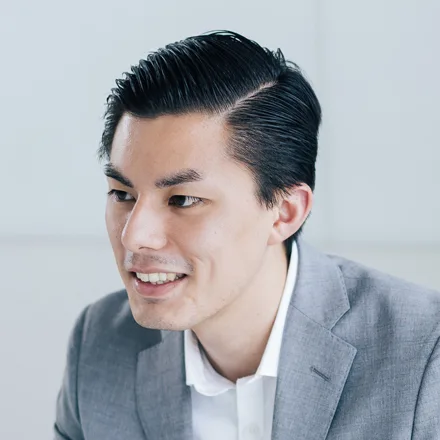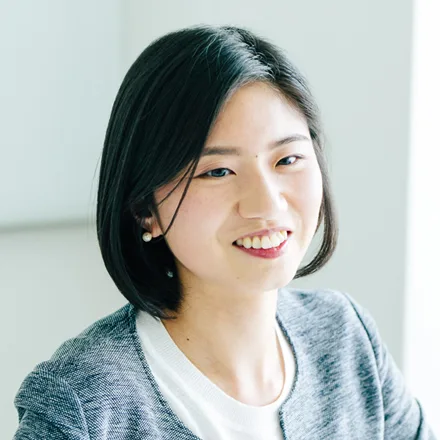Staff Interview
Saving lives
through drug development:
Remaining steadfast
Brand Communications
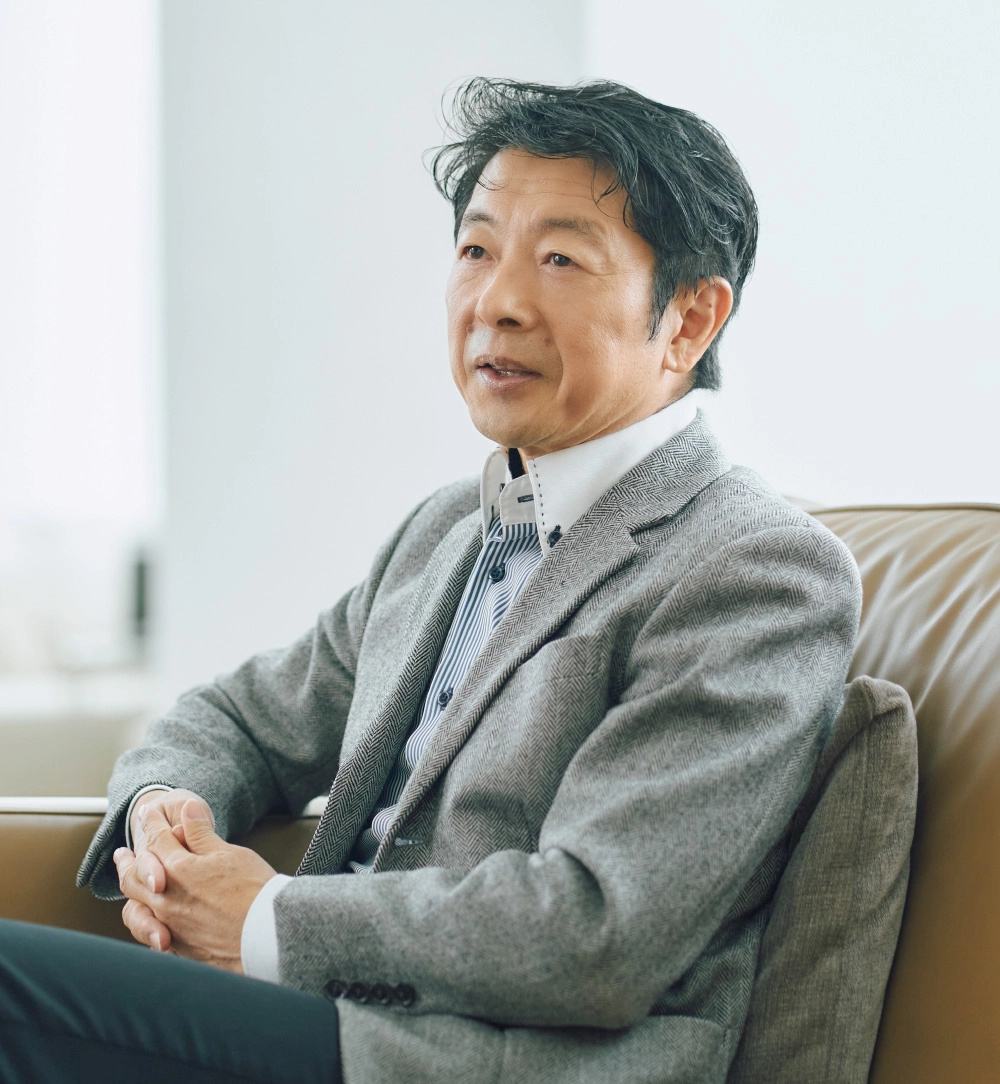
Ohata:
You became the CEO and Executive Director of the GHIT Fund in March of 2022, so it's already
been two years. What drew you to GHIT?
Kunii:
I previously worked with UNICEF (the United Nations Children's Fund) and the Global Fund (The
Global Fund to Fight AIDS, Tuberculosis and Malaria), and I've lived and worked for almost 20
years outside Japan, in such countries as the U.S., Myanmar, Kenya, and Switzerland. I felt
pulled to return to my home country. Also, my parents were aging and needed more care. I asked
myself: should I keep focusing on people in need overseas without helping my own parents in need
in my hometown?
GHIT is a new kind of global public-private partnership, with a mission of harnessing Japanese
science and drug discovery technologies to transform global health. I was familiar with GHIT and
had long recognized its significance and value. There are almost 180 organizations participating
in GHIT, and two-thirds of them are partners from outside Japan. It's a globally innovative and
unique presence in the field of research and development (R&D).
I had been engaged in delivering existing drugs, diagnostics, and vaccines to people in low- and
middle-income countries, but I felt it was no longer the right fit. To combat infectious
diseases that still run rampant around the world, we need more rapid, accurate, point-of-care
diagnostic tools and more effective drugs with fewer side effects, especially in the face of
rising drug resistance. We also need vaccines to prevent infection from happening in the first
place. I thought it would be interesting and worthwhile to work in drug discovery and
development—not just delivery. I was also enthralled by the potential to save tens of millions
of people by developing new drugs.
Why did you come to work with GHIT?
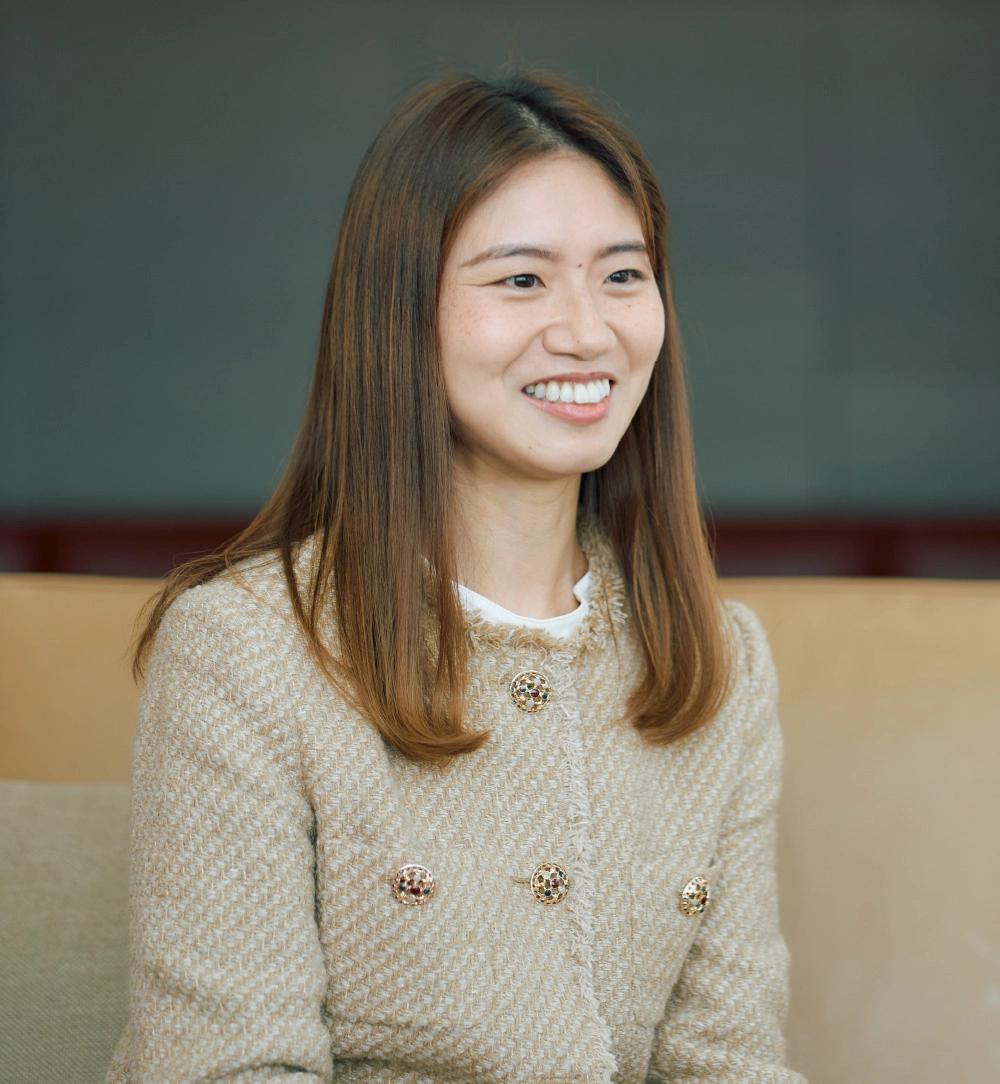
Ohata:
As a child, I wanted to help people in developing countries. In university, I was a liberal arts
student, majoring in international politics, so I the idea of working in the medical field was
not on my radar, but then I found out that even as a humanities major, I could work in drug
sales as a Medical Representative (MR). I thought it would be wonderful to improve human health
through medicine, so I accepted a job in a pharmaceutical company. I wanted to spend the time
leading up to graduation gaining unique experience, and I learned that GHIT was recruiting
interns. This connected to my own desires to provide support to people in developing
countries.
I worked as an intern at GHIT for roughly a year, starting in June 2013. GHIT itself only
started operations in April 2013, so I was there almost from the very start. At the time, GHIT
only had 10 staff members, including interns. The process for screening projects was still being
fleshed out, so we interns were able to take part in discussions along with employees. We were
creating something entirely new, and it was a tremendous experience.
After that, I worked as an MR in a pharmaceutical company for about three years, and although it
was very rewarding, I couldn't ignore my desire to help improve the lives of people in
developing countries, so I applied to work at GHIT again. I became a full employee in February
2017.

Kunii:
Of the 12
GHIT Values *
, I think 'Show Vision' is really critical. I believe organizations are
made up of diverse people with different values and abilities who come together to work
towards the same ideals for the future. It's really important how much passion and dedication
you have to achieving this dream -- this vision -- of innovating, developing new drugs, taking
on infectious diseases around the world, and saving lives.
But just having vision isn't enough. You also need to develop concrete approaches and look for
the most efficient routes toward that vision. It's important to clarify your Vision, Mission,
Objective, Strategy, and Action plan, collectively known as VMOSA. In April 2023 we launched
GHIT 3.0, our strategic plan for FY2023 through FY2027. Based on this, we create action plans
each year and keep pushing forward. GHIT 3.0 places special importance on accelerating R&D and
sending new products out into the world. The COVID-19 vaccines were developed within a year of
the pandemic's emergence, so we know that accelerating this process is not impossible. When you
think about the people suffering from neglected infectious diseases, waiting for new drugs, you
feel the urgency to shorten the time required to advance from stage to stage of the R&D process
and raise success rates.
To do that, the value of 'Be Responsible' -- living up to the
responsibilities assigned to each employee -- is also vital. To enable GHIT to minimize its
business office administrative expenses and invest as much of its budget as possible in R&D, we
operate with a lean team. That means that each person has major roles and responsibilities.
Everyone needs to actively think about how they can achieve our vision and goals, and then act
on their conclusions. They need to be persistent and be inclined toward taking on new
challenges. It's important that we help each other, learn from each other, and grow, both as
workers and as people. Each one of the 12 values is inextricably linked to the others.
When I joined GHIT, one of the first things that stood out to me was how smart our employees
are. They have global mindsets, they speak multiple languages, like English, French, and
Spanish, and they are excellent communicators. Almost everyone at GHIT has a very strategic and
systematic way of thinking. Although it's a Japanese organization, it also meets global
standards.
Ohata:
Everyone is very highly skilled, and there's so much to learn through the diversity of
perspectives. A lot of
GHIT colleagues come from non-medical backgrounds
, and the organizations that fund GHIT also have diverse backgrounds, consisting of the Japanese
government, foundations, and members of the private sector. Every day, I feel that innovation
truly comes from diversity.
Also, our organizational culture is extremely open; indeed, 'Be Open' is one of the GHIT values.
We're a small organization, so everyone knows each other, and it's easy to communicate with
people in other departments. People can speak frankly, without worrying about seniority.
GHIT enables its
people to take on new challenges
.
GHIT Values:
GHIT's 12 values
were established to foster continuous organizational
growth and serve as a code of conduct for employee capability development. They
include:
Be Open, Show Initiative, and Commit to Goals.
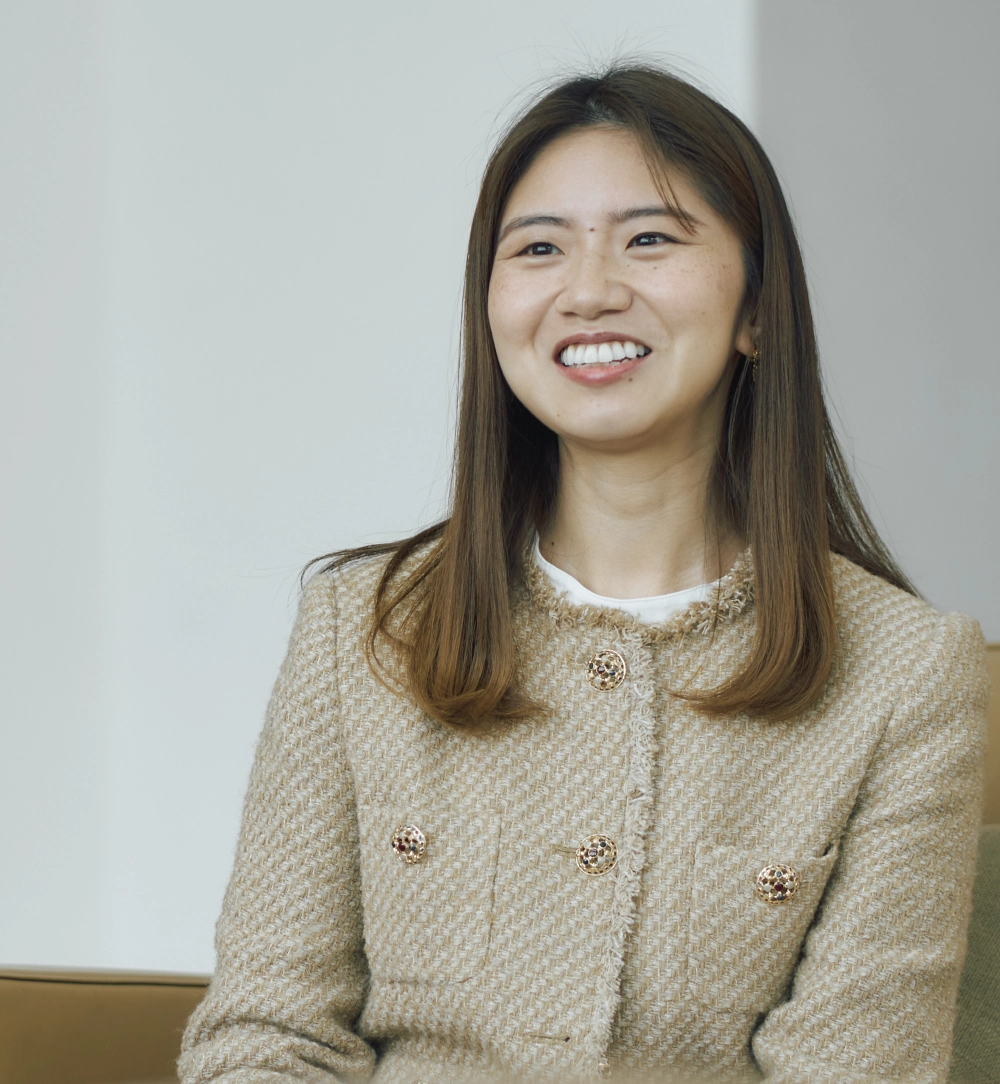
Kunii:
Speaking of challenges, in April 2023, you were the first GHIT employee to transfer between
departments. What led to this move?
Ohata:
From the time I joined GHIT, I was part of the investment team. I was responsible for managing
projects we supported, from running calls for proposals to concluding agreements when investment
decisions were made, and managing projects after the agreements were completed. It was a
wonderful experience, allowing me to collaborate with researchers and watch as their projects
progressed, achieving milestone after milestone.
Then, a position opened in the communications team. I wanted to take on the challenges of that
position, so I threw my hat into the ring and was ultimately transferred. As someone with a
liberal arts background who knew little about global health until interning at GHIT, I always
felt a powerful desire to raise awareness that there are people out there, from children to the
elderly, struggling with disease and unable to obtain the medicine they need. I felt that I
could contribute to this awareness-raising through communications work.
Kunii:
They say that 80% of one's life comes down to chance. One's own planning and visualization only
account for about 20%. It's also said that the mindsets, actions, and ways of thinking differ
between people for whom that 80% goes well and those for whom it doesn't. I think your
interests, your awareness of what you wanted to do, and the fact that you shared this with those
around you led to this turning point in your life, your departmental reassignment. If you hadn't
vocalized your hopes, this change wouldn't have occurred. I also know you were entrusted with
this important work because of the trust you have earned from those around you, together with
your diligence and the passion you feel for your work.
How does it feel now, having transferred from the investment team to the communications
team?
Ohata:
I need to communicate with a broad spectrum of people who don't know much about global health
and translating these issues and contexts can be difficult. I've been at GHIT a long time, so I
understand these issues myself, but there's a big difference between understanding something and
being able to explain it to others. If press releases are too long, people won't read them.
Being able to express things succinctly and clearly requires study and training. That's why we
created new content on the GHIT website,
'GHIT in 1 min,'
to inform even more people about our
work and global health issues more broadly. The text and visuals on this page are easy to
understand, so I'm particularly happy with it.
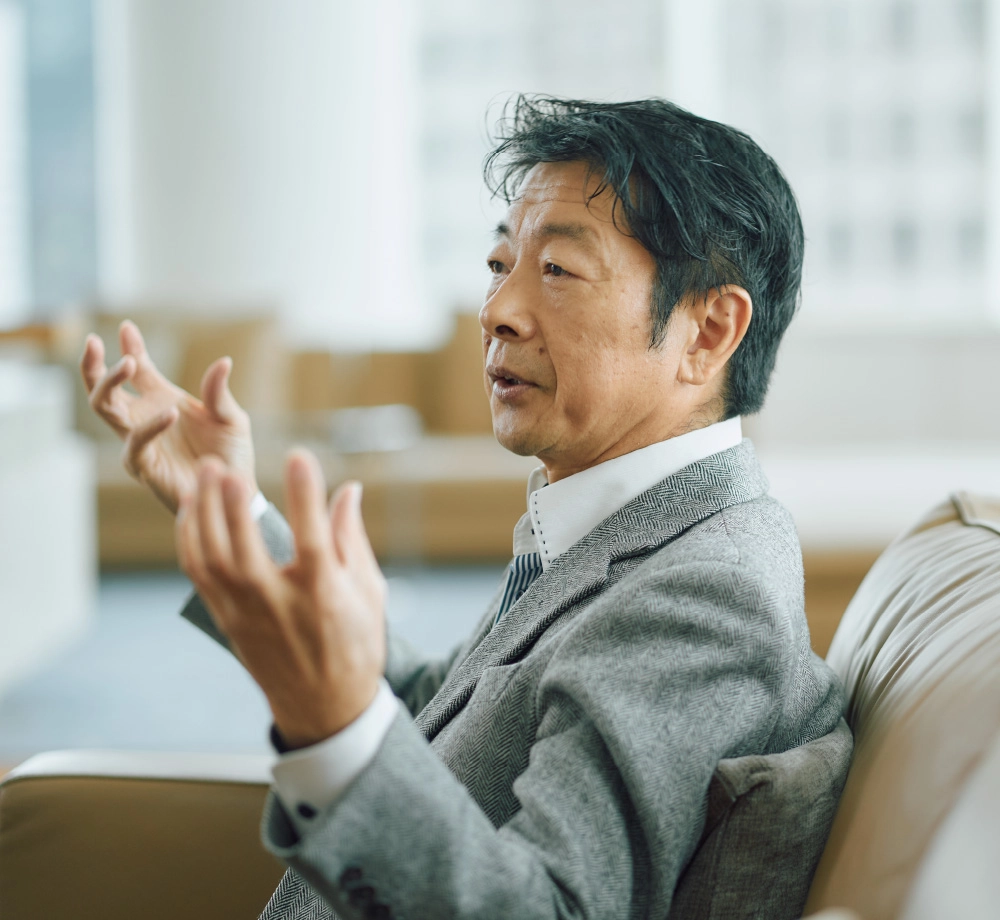
Kunii:
To achieve GHIT's vision, staff members need to think ahead, proactively share proposals for
action with their supervisors, and take concrete steps forward. If things don't go well, they
need to ask themselves why, and how they can to overcome challenges. It's important that they
experiment and reflect, and that both our staff members and organization as a whole
grow.
GHIT has staff from overseas, and the Board of Directors and the Selection Committee bring
together top-class global leaders and experts. We provide opportunities for these diverse people
to meet and have a variety of new experiences.
How would you characterize GHIT's work environment?
Ohata:
Work schedules are completely based on a flex-time system, and you can work from home, making
work extremely efficient. There are people like me, who are raising children, and there are also
people in all kinds of different stages of their life. GHIT's culture makes it easy to maintain
work-life balance. For example, if my child has a fever, I can leave work early and take care of
the work at night. The people around me are understanding and supportive. The workplace
environment is very flexible. I'm doing my utmost both at work and at home, aiming to make an
impact with my limited time.
Kunii:
It's important to create a good organizational culture and customs of producing results while
improving productivity, and at the same time valuing private life. I hope that GHIT will always
run one step ahead of the rest of Japanese society with global standards.
Our mission is to improve health and save the lives of people around the world. This work is
uniquely rewarding. This vision is too ambitious to achieve with just the limited number of GHIT
employees. That's what makes partnership so critical for us. We're continuously evolving our
partnership mechanisms to attract an even greater range of partners from industry, academia, the
government, and beyond, and to create synergistic effects, so that we’re not simply adding 5+5
to get 10, but multiplying 5x5 to get 25. I want all of our staff and partners to take on that
challenge together.
To do that, all our team members must share the same vision, but, even beyond that, I want them
to embrace a passion and drive for realizing that vision, and translate their passion into
concrete actions. I hope that everyone here enjoys their work but also enjoys a rich personal
life. As Chief Entertainment Officer, not just Chief Executive Officer, I highly value our fun,
rewarding work environment.
Biography
Osamu Kunii is CEO and Executive Director of the GHIT Fund. In the past 30 years, he has been engaged in global health, especially infectious diseases control, humanitarian emergencies, and maternal and child health, through NGO, JICA, academia, Japanese Ministry of Foreign Affairs, UNICEF, and the Global Fund. He serves as visiting professor in several universities, and has published over 100 articles and books related to global health. He holds an MPH from Harvard T.H. Chan School of Public Health and a PhD from the Graduate School of Medicine, the University of Tokyo. Recently he served as Deputy Director of G7 Hiroshima Global Health Taskforce and Chair of 100 Days Mission Working Group.
Mina Ohata is Senior Manager of Brand Communications since April 2023, focusing on public relations, branding, and communications. In her previous role in the Investment Strategy team, she led a series of processes from soliciting applications to determining investment targets, as well as managing the progress of each project after investment. Previously, she held Medical Representative and Marketing roles at Pfizer, Inc., for a little over three years. Before that, she contributed as an intern at GHIT during the institution's first year of operations, concentrating on the preparation of investment processes and the introduction of system manuals. She holds a Bachelor of Arts in Law from Hosei University.
*Affiliation and position are as of the time of the interview.
Staff Story
GHIT staff members with a variety background discuss their experience in and passion for global health R&D, as well as their day-to-day work.
*Affiliation and position are as of the time of the interview.

